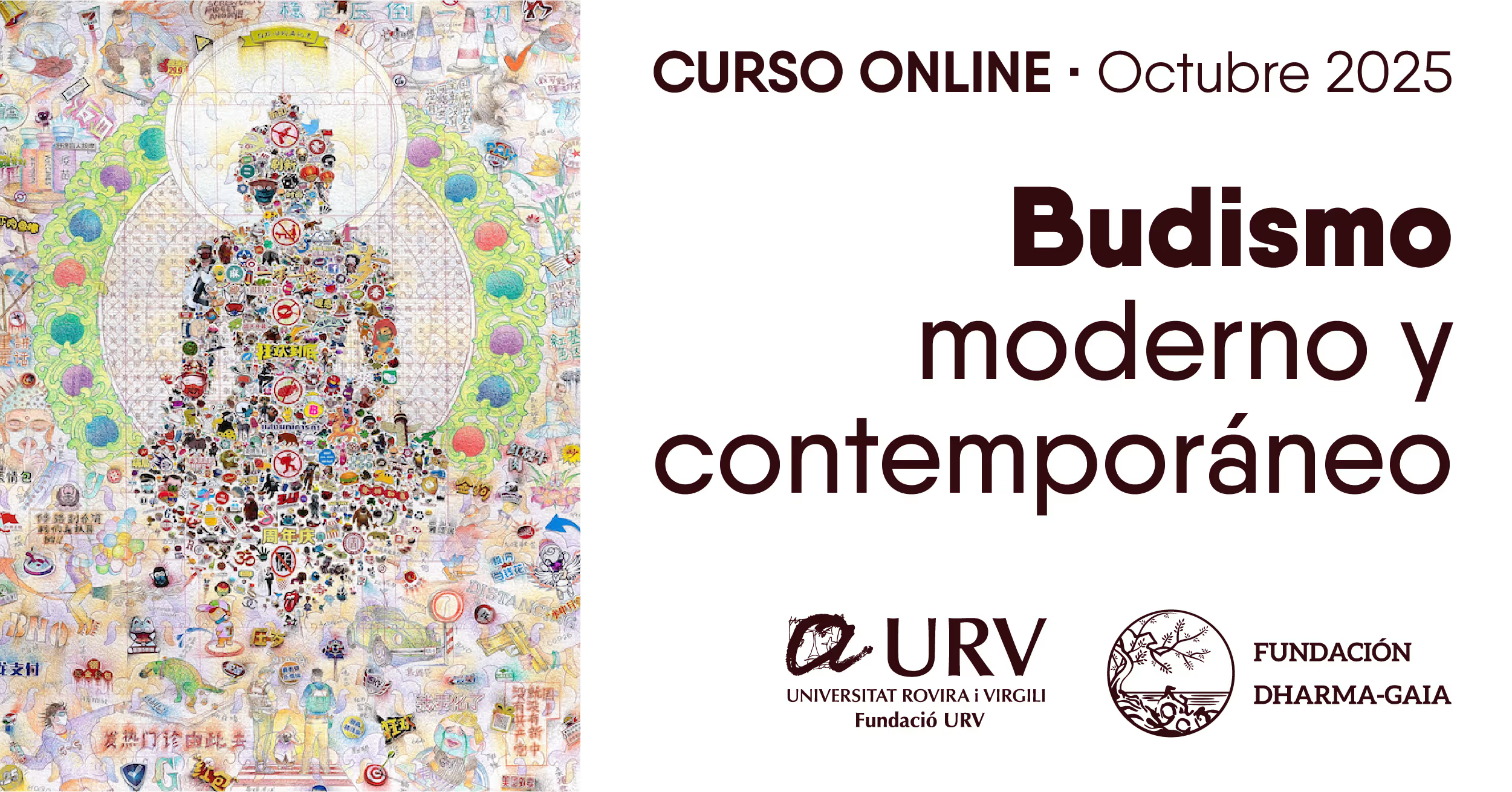
An innovative academic program for the Spanish-speaking world
The fascinating confluence between an ancient spiritual tradition and the challenges of the contemporary world comes to life again in the second edition of the innovative academic program announced by the Fundació Universitat Rovira i Virgili (FURV) and the Dharma-Gaia Foundation (FDG). This online course, focused on exploring modern and contemporary expressions of Buddhism, has opened its enrollment period and offers a unique opportunity for Spanish-speaking students.
A Consolidated Academic Collaboration
This training proposal is the result of the solid alliance established between FURV and FDG in 2021. It represents the natural evolution of a shared commitment to the rigorous dissemination of Buddhist knowledge in Spanish-speaking academics. Scheduled for the last quarter of 2025, the course responds to the growing academic and social interest in understanding how a philosophy with twenty-five centuries of history establishes a lively and relevant dialogue with the paradigms and challenges of the contemporary world.
The announcement of this program comes after the resounding success of previous courses that formed a complete tour of the main Buddhist traditions: “Early Buddhism and the Theravāda Tradition: Teachings and Practices” (October-December 2024); “Mahāyāna Buddhism and its expansion in East Asia” (April-June 2025); and”Vajrayana and Tibetan Buddhism: Teachings and Practices” (October-December 2025). Each of these courses had between 60 and 80 participants and received exceptionally positive reviews, consolidating an educational trajectory of excellence.
Focus and contents of the program
This course has been designed with the purpose of providing, from various perspectives and disciplines, a comprehensive vision of modern Buddhism and the presence of Buddhism in the contemporary world. It examines the ways in which modernity has influenced our understanding of Dharma from the 19th century to today, and how the modern world has also been influenced by this ancient tradition.
We will begin by examining the concept of modern Buddhism and will study the history, multiple trends and main characteristics of the adaptation of Buddhism to today's world. Next, we will focus on two thematic fields of special relevance: the intersections between Buddhism and science, and between Buddhism, psychoanalysis and psychotherapy. Later, we will analyze the presence of Buddhism in contemporary societies and see how this tradition has responded to current issues such as gender equality, homosexuality, feminism, the climate crisis, interreligious dialogue, bioethical concerns and artificial intelligence. We will pay special attention to the history, situation and defining features of Buddhism in Ibero-America, to Buddhism in cyberspace, and to the impact of the Dharma on contemporary art and popular culture.
After a description of how the great traditions of Buddhism have adapted to the modern world, we will explore the movements that shaped humanist or socially committed Buddhism. This course has a large experiential component, with several meditation workshops in which we will learn modern expressions of ancient meditative practices.
Methodology and learning experience
Transcending the purely academic approach, the course incorporates practical workshops where participants will directly experience different meditative techniques that have been creatively adapted to the contemporary context, thus establishing an experiential bridge between theory and practice. This multidisciplinary approach combines maximum academic rigor with practical experiences that enrich the learning process.
One of the most valued features of the program is its flexible format, allowing students to choose between attending live sessions —with the possibility of interacting with teachers— or subsequent access to recordings, adapted to the diverse needs and time zones of participants from anywhere in the world. This hybrid modality guarantees an accessible, personalized and top-quality learning experience. The sessions have been scheduled at a time compatible with participants from Latin America.
Practical details
Language: It is taught in Spanish and is aimed at both university students and anyone interested in deepening their understanding of contemporary Buddhism.
Duration: The course consists of 60 teaching hours (equivalent to 6 ECTS credits), distributed in two weekly sessions of 2.5 hours each through the virtual campus (Moodle) of the URV.
Dates and times: From September 30 to December 19, 2025. The sessions will take place in the afternoon (16:00 to 18:30, Spanish time), facilitating participation from different time zones.
Enrollment: With a limit of 50 places that will be filled in strict order of registration, the course costs 180€. The only academic requirement is to have completed secondary education.
Certification: Participants who attend at least 80% of the sessions and complete the final work will receive an official certificate issued jointly by the FURV and the FDG.
Final work: To obtain certification, students must submit an essay of about 2000 words on one of the topics covered during the course. Detailed guidelines and advice will be provided for the preparation of this work.
Program and teachers
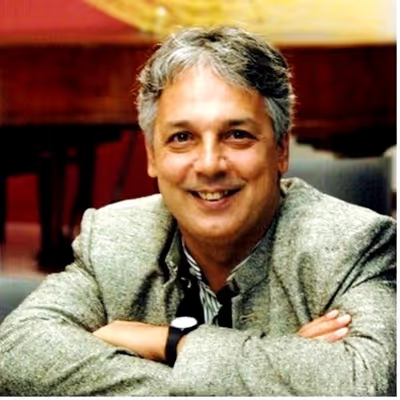
Agustí Pàniker Vilaplana (Barcelona, 1959) is the director of the publishing house Kairós, an essayist, lecturer, and a great scholar of India and world religions. He teaches several university master's degrees, including the Master's Degree in Religions and Societies at the Pablo Olavide University (Seville). He has also been a professor in the Master in History of Religions at the UAB-UB, in the Master in Asia-Pacific Studies at the UB and in the Master in Immigration and Intercultural Education at the UB. He is the author, among others, of the books: Jainism. History, Society, Philosophy and Practice(Kairos, 2001); India. An Intellectual Decolonization: Reflections on History, Ethnology, Politics and Religion in South Asia (Kairos, 2005); The Sikhs (Kairos, 2007); Shitala's dream. Journey to the World of Religions (Kairos, 2011); Caste Society: Religion and Politics in India (Kairos, 2014) and The Three Jewels. The Buddha, His Teaching and the Community (Kairos, 2018). He has written numerous articles in university publications and in popular journals on different aspects of world societies, traditions, religions and cultures.
In this course, Agustín Pániker will give the fundamental sessions on the historical development of modern Buddhism:
September 30 (Tuesday): Introduction to Modern Buddhism, Bibliography, Definitions (Traditional/Modern/Postmodern)
October 2 (Thursday): Developments of modern Buddhism in Sri Lanka (unity, textualization, rationalization)
October 6 (Monday): Developments of modern Buddhism in Southeast Asia (centrality, meditation, politicization)
October 10 (Friday): Developments of Modern Buddhism in Japan (Romanticism filter, “New Buddhism”, Suzuki)
October 14 (Tuesday): Developments of modern Buddhism in China (worldly orientation, committed Buddhism)
October 16 (Thursday): Developments of modern Buddhism in Tibet (demythologization)
October 21 (Tuesday): Developments of modern Buddhism in the West (encounter Buddhism, Irradiations, subjective turn, individualism, interaction with science)
October 23 (Thursday): Developments of modern and postmodern Buddhism in the West (psychologization, inclusion, mindfulness, critical potential)

Sergio Stern Nicolayevsky has been a psychoanalyst in private practice since 1989. He graduated from the University of California, Berkeley, and completed postgraduate studies at the Mexican Psychoanalytic Association, at the Institute of Psychiatry, King's College London, United Kingdom, and at Duquesne University in Pittsburgh, Pennsylvania, where he studied a master's degree in existentialism and phenomenology. Born in Mexico City in 1963 into a family of Jewish immigrants from Eastern Europe, throughout his career Sergio has given numerous talks on Buddhism and psychoanalysis in different meditation centers and published academic and educational articles on the subject. He lives in the City of Xalapa, Veracruz, Mexico, and is the founder of Despierta Mountain, a space for the practice of meditation inspired by Zen Buddhism, located in that city since 2008. Despierta Mountain is a member of Branching Streams, a network of practice centers in the tradition of master Suzuki Roshi and part of the San Francisco Zen Center, where Sergio has practiced and learned from his masters @s for many years (www.mdzen.com). He is the author of The Empty Bowl: Contributions of a Psychoanalyst to the Study of Buddhadharma posted by Ed. Gedisa, Barcelona, 2022.
Sergio Stern Nicolayevsky will teach classes on Buddhist psychology and its contemporary applications on:
October 28 (Tuesday): Buddhism, Psychology, Psychoanalysis and Psychotherapy I
October 30 (Thursday): Buddhism, Psychology, Psychoanalysis and Psychotherapy II
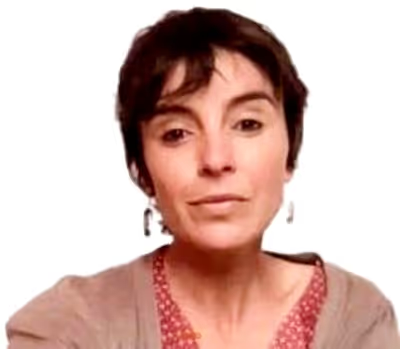
María Elvira Ríos Peñafiel (Santiago, Chile 1980) holds a master's degree and doctorate in Asian and African studies, specializing in China, from the Center for Asian and African Studies of El Colegio de México (2015). She was a doctoral student of renowned professor Luis Óscar Gómez. He has published his research on Buddhism and Chinese culture in multiple academic journals. She is the coordinator of New Dialogues: Asia and Africa from a Latin American Perspective, The College of Mexico (2019). She has been an advisor to the Chinese Language Project of the Chilean Ministry of Education (2015-2018), researcher and coordinator of the Degree in Chinese Studies project, Universidad Santo Tomás (2018). She has taught courses in Buddhism at various Latin American academic institutions and was a postdoctoral fellow at the Institute of Aesthetics of the Pontifical Catholic University of Chile, with the research “The ecological reflection of Chinese Buddhism”. She is currently an adjunct researcher at the ICLAC Millennium Center, Catholic University of Chile, professor at the Dharma Gaia Foundation and member of RIEB, ALADAA Chile and LEB.
November 4 (Tuesday): Buddhism and Ecology
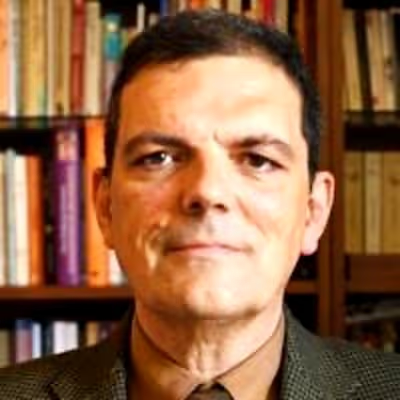
Francisco Díez de Velasco
Professor of History of Religions and specialist in Buddhism in Spain:
He is a professor at the University of La Laguna (profile: history of religions). He has a doctorate in History and a degree in Social and Cultural Anthropology. His publications include: Religious Diversity in Spain: Reflections and Examples (Madrid: Classic Editions, 2023); Buddhism in Spain: History, Visibility and Implementation (Madrid, Akal, 2013); Buddhism in Spain: History and Present (Madrid: Classic Editions, 2020); Religions in Spain: History and Present (Madrid, Akal, 2012); Introduction to the History of Religions (3rd edition, Madrid, Trotta, 2002); The History of Religions: Methods and Perspectives (Madrid, Akal, 2005), A Brief History of Religions (Madrid, Alianza, 2006-2014) by as editor The Study of Religion (Madrid, Trotta, 2002 with F. García Bazán), Religions between continents: Religious minorities in the Canary Islands (Barcelona, Icaria, 2008); Orthodox churches in Spain (Madrid, Akal, 2015); Ephemeris Blázquez I: José María Blázquez and the History of Religions (Madrid, Classic Editions, 2020). He has been editor of the magazine from 2006 to 2021 Bandue. Journal of the Spanish Society for Religious Sciences. He teaches the subjects of History of Religions (Degree in History, ULL), Religious Diversity and Cultural Integration (Degree in Anthropology, ULL) and theory and methodology of the history of religions (Master in Religious Sciences UCM and UPO/UCIII/ULL). He has been a Corresponding Academician of the Royal Academy of History since 2013.
November 6 (Thursday): History, Situation and Traits of Buddhism in Spain
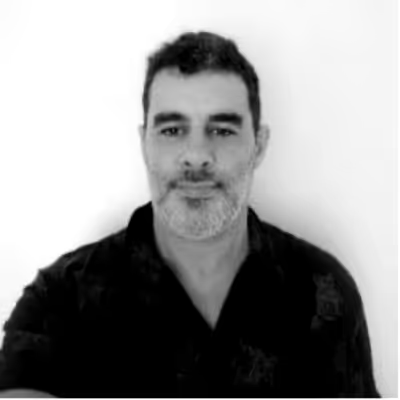
Cato Eduardo Carini He has a degree in Anthropology from the National University of La Plata (UNLP), a master's degree in Social Anthropology from the Latin American Faculty of Social Sciences (FLACSO) and a doctorate in Anthropology from the UNLP. He works as an associate researcher at the National Council for Scientific and Technical Research (CONICET) of Argentina and as professor of Cultural and Social Anthropology at the UNLP. He became interested in Buddhism in 1999 when he began practicing Zen meditation with the French teacher Stéphane Thibaut of the Zen Association of Latin America. Later, he focused on the practice of Vipassana meditation in centers linked to the Burmese teacher S. N. Goenka, as well as on the practice of the Dzogchen tradition of Vajrayana, under the guidance of the Tibetan teacher Chogyal Namkhai Norbu.
Anthropologist specialized in Latin American Buddhism and meditative practices:
November 11 (Tuesday): History, Situation and Traits of Buddhism in Ibero-America
November 13 (Thursday): Buddhism in Cyberspace, in Contemporary Art and Future Trends
December 2 (Tuesday): Meditation Workshop 1: Vipassana meditation linked to teacher S. N. Goenka
December 4 (Thursday): Meditation Workshop 2: Zen Meditation in the Deshimaru Line
December 9 (Tuesday): Meditation Workshop 3: The practice of the Dzogchen tradition of Vajrayana.
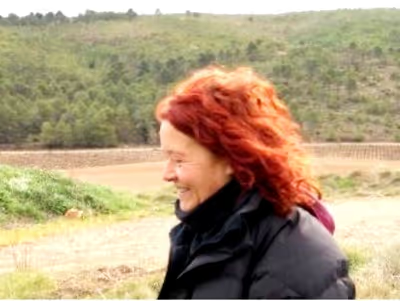
Montserrat Castellà Olivé has been a practitioner of Tibetan Buddhism since the late 70's. Under the authorization of his teacher Lama Thubten Yeshe, he conducts meditation retreats and workshops integrating the practice of Qi Gong. She is an editor and translator of Buddhist texts, of which she stands out Women of Wisdom by Tsultrim Allione and The Warm Breath of the Dakini by Judith Simmer-Brown. She is the author of several articles on women and Buddhism, as well as on interreligious dialogue. Co-founder and current vice-president of the Catalan Coordinator of Buddhist Entitats (CCEB), founding president of Sakyadhita Spain, the Buddhist women's association, and former president of the UNESCO Association for Interreligious Dialogue (AUDIR).
November 18 (Tuesday): Buddhism and Women and Interreligious Dialogue
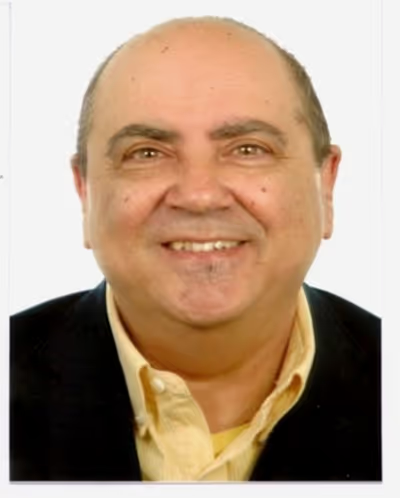
José Antonio Rodríguez Díaz completed his doctorate in Sociology at Yale University (USA). Department of State) with grants from the Social Science Research Council and the Fulbright Commission. He is a professor and has been director of the Department of Sociology and director of the Doctoral Program in Sociology at the University of Barcelona. He has been a visiting professor at the Center for European Studies at Harvard University, at Yale University and at the University of California at Santa Barbara. His current research and publications focus on the role of social networks in organizations and societies, future studies, and the social dimensions of happiness. These lines of research converge on the study of the processes of transformation and articulation of Buddhism in modern society.
November 20 (Thursday): Buddhism and Contemporary Society I
November 24 (Monday): Buddhism and Contemporary Society II
November 27 (Thursday): Buddhism and Contemporary Society III

Denise Welsch She has a degree in Sociocultural Anthropology from the Faculty of Philosophy and Letters of the University of Buenos Aires, a doctoral fellow at the Institute of Anthropological Sciences of the University of Buenos Aires and a professor of Anthropology and Sociology. She is the author of several articles on the Buddhist practice of the Argentinian Soka Gakkai. He is interested in the study of the symbolic aspects of religious practices and how these shape processes of construction and transformation of subjectivity
December 11 (Thursday): Pure Land Buddhism. Nichiren.
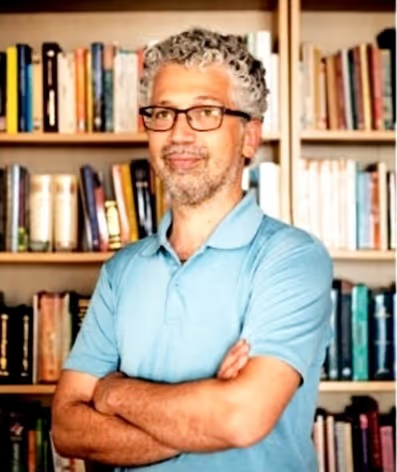
Ferran Mestanza Garcia is a prominent practitioner and student of dhamma since 1996, with a solid background in Buddhist studies and classical Tibetan. A graduate of the Brown University School of Public Health and a disciple of Tibetologist Ramon Prats, he has a degree in Humanities from the UPF and in Oriental Languages and Civilizations, a Tibetan specialty, by the INALCO, in addition to having a DEA in Higher Asian Studies by the EPHE. He has lived in India, Nepal and Paris, delving into Tibetan Buddhism, and is the founding director of Barcelona Mindfulness Center, where it promotes the accessibility of mindfulness practices based on Buddhist teachings for all types of audiences. His work as a translator of Buddhist texts into Tibetan and his commitment to the authentic transmission of the dharma consolidated him as a key figure in the field of Buddhist and Tibetan studies in contemporary contexts.
December 15 (Monday): Meditation Workshop: The Practice of Mindfulness
December 19 (Friday): Meditation Workshop The Practice of Mindfulness
How to enroll?
Registration is now open and places are allocated in strict order of application. To ensure your participation in this unique program, you can complete the registration form through the official website of the Fundació Universitat Rovira i Virgili (https://www.fundacio.urv.cat/budismo_moderno_y_contemporaneo/of_es/es/CBUDMICCA-A1-2025-2) or contact the course secretariat directly by email: formacio@fundacio.urv.cat.
Don't miss the opportunity to be part of this educational experience that combines academic rigor with the ancient wisdom of Buddhism adapted to our times.
Useful links:
Video presentation of the Universitat Rovira i Virgili 2020
Articles published on Buddhistdoor in Spanish
”The situation of Buddhist studies in Spain: educational programs” by Juan Arnau Navarro, Montse Castellà Olivé, Francisco Díez de Velasco, Ricardo Guerrero Diáñez, Basili Llorca Martínez, Daniel Millet, Agustín Pániker Vilaplana, Aleix Ruiz Falqués, Jaume Vallverdú Vallverdú, Abraham Vélez de Cea.
María Elvira Rios:”An Ecosophical Interpretation of the Buddhist Experience of Ganying” Of
Sergio Stern Nicolayevsky: ”The Empty Bowl: Contributions of a Psychoanalyst to the Study of Buddhadharma”
Jose Antonio Rodriguez Diaz: ”Buddhist values and actions for more harmonious and sustainable societies”
Montserrat Castellà Olivé: ”Emerging Paradigms and Spiritual Traditions”
Dr. Cato Eduardo Carini: ”Buddhist Traditions in Contemporary Argentina”
Other related articles published on Buddhistdoor in Spanish
”Interview with Agustín Pániker, director of Editorial Kairós” by Daniel Millet.
”Contributions to the sociology of Buddhism. Interview with José Antonio Rodríguez Díaz” Daniel Millet.
”Interview with Montse Castellà Olivé, president of Sakyadhita Spain” by Daniel Millet.
Other related articles published on Buddhistdoor in Spanish
”Interview with Agustín Pániker, director of Editorial Kairós” by Daniel Millet.
As a result of this fruitful collaboration between FDG and URV, it has recently been published Buddhist studies in Latin America and Spain, an academic work in two volumes that aims to expand knowledge about this ancient tradition in the Spanish-speaking world. This work was edited by Professor Jaume Vallverdú, doctor in Social and Cultural Anthropology and professor in the Department of Anthropology, Philosophy and Social Work of the URV, and Dr. Daniel Millet, president and founder of the Dharma-Gaia Foundation. Co-published by Publicacions Universitat Rovira i Virgili and the Dharma-Gaia Foundation, this work brings together the contributions of leading specialists in the field of Buddhist studies in Spanish, consolidating itself as a key resource for research in this field of study. Both volumes are available in PDF format and can be downloaded free of charge through the following links First volume And Second volume










